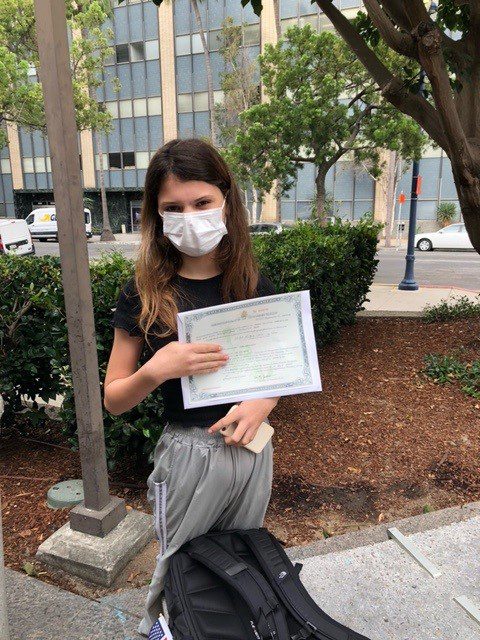Crimes affect a person’s immigration status. Crimes can make an applicant ineligible for a visa, and can trigger deportation for immigrants already in the US. Which crimes trigger what outcomes? This question does not have a simple answer, because the law has multiple layers and is constantly changing. The relevant statute is the Immigration and Naturalization Act (INA). However, it’s not enough to look just at the INA, because one must look at how the United States Supreme Court has applied the INA in case law to specific crimes. Further, it is not always clear if a Supreme Court ruling applies to a particular immigration case. The Board of Immigration Appeals (BNA) synthesizes the statute with cases to determine the outcome in individual immigration law matters. The following is a short summary of the law as it stands today.
There are “inadmissible” and “deportable” offenses. Inadmissible offenses are crimes that will prevent an immigrant outside of the US from entering. Deportable offenses are crimes that trigger deportation proceedings for immigrants already inside the US. The INA defines what types of crimes trigger inadmissibility or deportability. To know if a crime meets the INA’s definition, we must examine the language of the criminal statute under which the person was convicted. And “conviction” is an important term, because a crime can only affect a person’s immigration status if there is a final judgment of guilt. There is an important exception for admissions, so if a person admits to a past crime, it can affect the applicant’s status even without a conviction.
To be inadmissible because of a crime, you have to commit a Crime Involving Moral Turpitude (“CIMT”) or a drug related crime. CIMT is a broad category defined by case law and includes many offenses. CIMT usually include a vicious motive and require specific intent. Common CIMT include theft and larceny, fraud crimes, drug trafficking offenses, and crimes of violence like murder, rape and battery. Regulatory violations like overstaying a visa are generally not considered a CIMT, unless they involve an additional element of fraud, or another recognized CIMT. There is no requirement relating to the degree of the crime or the sentence imposed. The idea is that CIMT are about intent and motive, so if a person is convicted of stealing 10 cents, it’s still a CIMT because what matters is the intent to steal, not the amount stolen. An important exception states if the applicant only committed one crime, when he was under 18 years of age, and more than 5 years before filing his visa application, the crime does not count as a CIMT.
Different rules will apply once an immigrant is in the US. There are more crimes that make a person “deportable” than make him “inadmissible.” In addition to the crimes that make a person inadmissible, that is, CIMT and certain drug offenses, a person is also deportable for an “aggravated felony”. The term “aggravated felony” is confusing because in the realm of criminal law, “felony” and “misdemeanour” are mutually exclusive categorizations for crimes. Whether the offense is one or the other, or another classification like “offense,” is determined by the relevant criminal statute. “Aggravated felony,” by contrast, is a term used by the INA and is only used in the context of immigration law. A misdemeanour according to state law may qualify as an “aggravated felony,” despite not being a “felony” under the relevant criminal statute. Aggravated felonies include controlled substance trafficking, money laundering, many firearms offenses, theft, and crimes of violence. In contrast to CIMT which do not have a minimum sentence requirement, to be an aggravated felony generally the statute must mandate a prison term of at least one year.
Drug offenses are interesting because they fall under a few categories of crimes that affect immigration status. Drug offenses can be an aggravated felony, a CIMT, or a “controlled substance violation” which is separate category of crime that’s considered a regulatory offense. The law is generally strict on drug trafficking, but the law is cloudier regarding simple possession. Possession is only an aggravated felony if the proscribed conduct is punishable as a felony under federal law. In practice this means that first time offenders of simple possession (except crack and flunitrazepam) are not committing an aggravated felony. But multiple offenders, or “recidivists,” fulfill the aggravated felony requirements, even if the multiple crimes are only misdemeanour simple possession offenses with no element of trafficking. In other words, multiple drug offenses, even if they are small, may be worse for a person’s immigration status than one more serious offense.
Immigrants are eligible for waivers after 15 years. Waivers are sought, not granted automatically, and to qualify for a waiver, the petitioner must meet the INA test, which differs depending on the category of the crime. Aggravated felonies in violation of the laws of a foreign country are irrelevant 15 years after completion of the sentence and don’t require a waiver.
Another common question is whether there must be an arrest for the crime to count as a conviction for immigration law purposes. The answer is, not necessarily. It depends on the relevant jurisdiction’s criminal statute. The concept is generally called “citation in lieu of arrest.” Although citation in lieu of arrest is generally only available for misdemeanours, two states (Louisiana and Oregon) explicitly allow citation for some felonies. Many other states either give discretion to the officer issuing the citation, or provide for a presumption in favour of issuing citations for certain crimes, but do not explicitly limit the citation procedure to misdemeanours. Therefore, if a person commits a crime, he should not think his crime is irrelevant to his immigration status merely because there was no arrest.
As can be seen from the above, whether a crime triggers the inadmissibility or deportability of an immigrant is a nuanced question that often will hinge on the specific criminal statute in the place where the immigrant was convicted. A criminal conviction in one state may make an immigrant ineligible for a visa, and the same crime committed in another state may have no impact at all on immigration status. Applicants who are concerned should examine the INA statute, and the relevant criminal laws and cases, and should consult an attorney if they have questions.
———————————————————————————
All said and explained in this article does not constitute a legal opinion and does not replace legal advice. Responsibility for using the wordings and opinions conveyed in this article relies solely and entirely on the reader.
This article was written by Dotan Cohen Law Offices, working in the field of immigration law in the United States, Canada, Australia and England.




